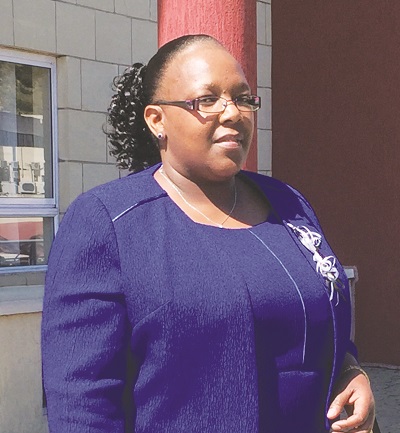We are that Starlight, an ember, ray and glimmer of hope in the dark season of someone’ life journey, an Oasis in someone’s wilderness, dry and hope-stealing experiences, reviving Hope in anyone experiencing life limiting conditions such as cancer; such individuals and their families are our partners in this journey of life as we navigate options which will help them to look forward to tomorrow with Hope and comfort. Whatever that TOMORROW may mean …….
We respect and appreciate our beloved health care professionals, stakeholders and partners (individuals and organizations).As an organization, we have enjoyed support from individuals and organizations from local, regional and global spheres and as we manifest strides and progress towards the fulfilment of our ultimate vision our anticipated impact on the lives of ordinary people and health care professionals (HCP) in Lesotho.
Despite our limitations of having got no physical presence in Lesotho, we have successfully attracted the support of reputable individuals and organizations both from in and outside palliative care arena. As a result, we are delivering a series of online courses for health care professionals ranging from 7 weeks to 11week programs. Trainings are delivered in collaboration with Ministry of Health, Palliative Care in Humanitarian Aid Situations and Emergencies (PallCHASE)-UK, Palliative Care Works (PCW)-UK AND Project ECHO-India. Anyone interested can check update on our Facebook page or email us on info@sohhospice.org.ls and check for updates on our website https://sohhospice.org.ls/
While we continue to raise funds for our building project, we also know that our ultimate vision is to serve Basotho and continue to work with our Ministry of Health and other stakeholders to improve the lives of our beloved citizens affected by life limiting illnesses such as cancer.
In this Month of June, we wish to raise awareness about the need to support cancer survivors and also to improve measures which will maximize survivorships in our Kingdom through multi professional approach.
As a nation, we have experienced the increasing cancer burden and patients and their loved being on the receiving end of the distress and suffering. Not forgetting health care professionals who are facing with the competing demands of attending to the needs of those they serve day in and out.
Despite, the proven records that many of cancer patients are diagnosed late in their disease journey when cancer has advanced, we have been fortunate that we still have a record number of cancer survivors. These individuals range from children, youth and adults. As a matter of fact, they have specific and individual challenges from physical, social, psychological, spiritual and economic dimensions. We therefore, wish to bring these challenges to the fore, so that as a nation we are informed and therefore do everything in our power to close the care gaps for the benefit of those affected. Awareness about the challenges of cancer survivors will enable the health care providers to improve their services to cater for this group of clients, policy makers are expected to develop policies which will address the needs of survivors.
This awareness should not be an end in itself but has to attract attention of stakeholders, policy-makers, academicians, researchers, and practitioners toward advancing supportive care needs of cancer patients and survivors.
What is cancer survivorship?
A person who has had a cancer diagnosis is oftentimes called a “cancer survivor.” When people talk about “survivorship,” they are usually referring to navigating their life experiences and challenges resulting from their cancer diagnosis.
These individuals can sometimes live with an ongoing fear of cancer recurrence hence we should develop services within the existing health programmes to support them mentally and emotionally by providing psychosocial support. Sometimes they lose their physical ability to work and generate income and living for their families, in which case they need social support so they can address their basic needs.
Long term side effects of cancer treatment
Many people who have had cancer treatment are at risk of developing long-term side effects. These side effects can happen months or years after treatment. Evaluating and treating late effects is an important part of cancer survivorship care.
Healthy Living after Cancer
- Eating better, exercising and adopting an active life style, and develop healthy ways of managing stress. Pay attention to spiritual health and meditation practices.
- When you have cancer, it can be a challenge to eat well and get the nutrition that you need. It is important to find ways to maintain a healthy weight and eat nutritious foods. You also should drink plenty of water.
- How to maintain a healthy weight and get essential nutrients. Exercise is an important part of a cancer treatment plan. A growing amount of research shows that regular exercise can greatly improve physical and mental health during every phase of treatment. Even if you were not active before your cancer diagnosis, an exercise program that meets your unique needs can help you get moving safely and successfully.
Physical Activity Tips for Survivors
Research shows that physical activity is helpful during and after cancer treatment. For example, regular physical activity may lower the risk of some cancers recurring. It can also help you feel better after treatment ends.
Other benefits of an active lifestyle include:
- Improved self-esteem
- Feeling happier
- Being less likely to have depression, anxiety, and fatigue
- Having more strength and endurance
- Better bone health
- Maintaining a healthy weight


